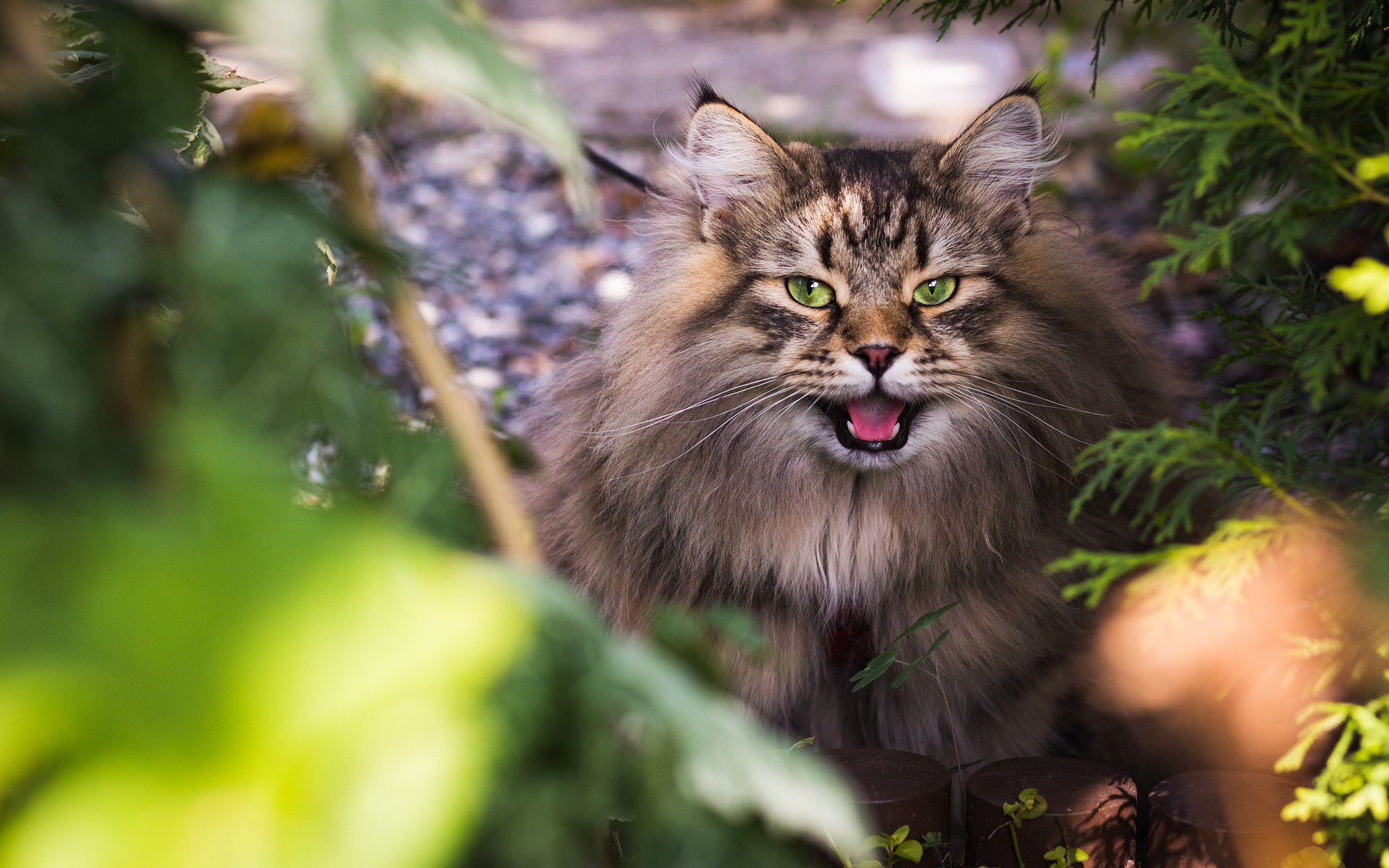
The Siberian cat, with its luxurious coat and regal demeanor, is a magnificent breed that hails from the forests of Russia. Known for their stunning appearance, friendly disposition, and hardy nature, Siberian cats have captured the hearts of cat lovers around the world. In this comprehensive guide, we delve into the fascinating world of Siberian cats, exploring their characteristics, origin, lifestyle, personality, lifespan, grooming needs, dietary habits, and guidelines for care.
Characteristics:
Siberian cats are known for their striking appearance, with thick, triple-layered coats that provide protection against the harsh Siberian climate. They have large, expressive eyes that range in color from gold to green, and sturdy bodies with strong muscles and a broad chest. Siberian cats come in a variety of colors and patterns, including tabby, solid, tortoiseshell, and colorpoint.
Origin:
The Siberian cat is an ancient breed that has been around for centuries, with origins tracing back to Russia’s Siberian forests. These hardy cats were prized for their hunting abilities and served as valuable companions to Russian farmers and peasants. Over time, Siberian cats became popular pets in Russia and eventually made their way to other parts of the world, where they continue to be cherished for their beauty and charm.
Lifestyle:
Siberian cats are well-suited to indoor living but also enjoy spending time outdoors, exploring their surroundings and indulging their natural hunting instincts. They are active and playful cats that enjoy interactive toys and engaging in games with their human companions. Siberian cats are known for their friendly and sociable nature, forming strong bonds with their families and getting along well with children and other pets.
Personality:
Siberian cats are renowned for their friendly, affectionate, and outgoing personalities. They are intelligent and curious cats that enjoy exploring their environment and interacting with their human companions. Siberian cats are known for their gentle and patient nature, making them excellent pets for families with children and other pets. They are also known for their loyalty and devotion to their owners, often following them around the house and seeking out their company.
Lifespan:
On average, Siberian cats have a lifespan of 12 to 15 years. With proper care, nutrition, and regular veterinary check-ups, many Siberian cats live well into their late teens and beyond.
Facts:
– Siberian cats are known for their hypoallergenic qualities, with many people who are allergic to cats finding that they can tolerate Siberian cats.
– Siberian cats have a thick, water-resistant coat that helps protect them from the cold and wet weather of their native Siberian habitat.
– Siberian cats are excellent climbers and enjoy perching in high places to observe their surroundings.
– Siberian cats are known for their vocalizations, with some individuals being quite chatty and expressive.
Grooming:
Siberian cats have a dense, triple-layered coat that requires regular grooming to keep it in good condition. Weekly brushing with a stainless steel comb or slicker brush will help remove loose hair and prevent mats and tangles from forming. Additionally, regular nail trimming, ear cleaning, and dental care are essential parts of maintaining your Siberian cat’s overall health and well-being.
Food Habit and Food Preferences:
Siberian cats have hearty appetites and enjoy a balanced diet that provides them with essential nutrients and vitamins. High-quality commercial cat food formulated for their age, size, and activity level is recommended. Siberian cats may have specific dietary preferences, so it’s essential to offer a variety of wet and dry food options to keep them satisfied.
Guidelines for Care:
1. Provide plenty of mental stimulation and interactive play to keep your Siberian cat mentally and physically engaged.
2. Create a warm and comfortable environment with plenty of cozy spots for lounging and napping.
3. Maintain regular veterinary check-ups to monitor your Siberian cat’s health and address any medical concerns promptly.
4. Ensure your Siberian cat has access to fresh water at all times and feed them a balanced diet tailored to their nutritional needs.
5. Socialize your Siberian cat from a young age to help them develop into well-adjusted and confident companions.
6. Spend quality time bonding with your Siberian cat through grooming, playtime, and affectionate cuddles to strengthen your bond and enhance their overall well-being.
In conclusion, Siberian cats are cherished for their majestic appearance, friendly disposition, and gentle nature. By understanding their characteristics, origin, lifestyle, personality, lifespan, grooming needs, dietary habits, and guidelines for care, you can provide your Siberian cat with the love, attention, and care they deserve, ensuring a happy and fulfilling life together.
